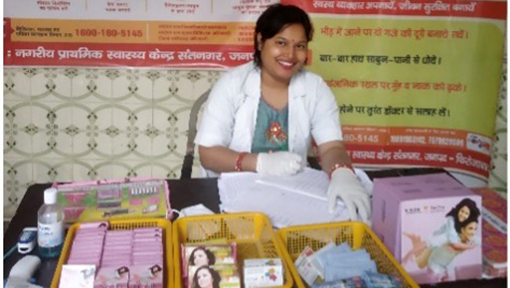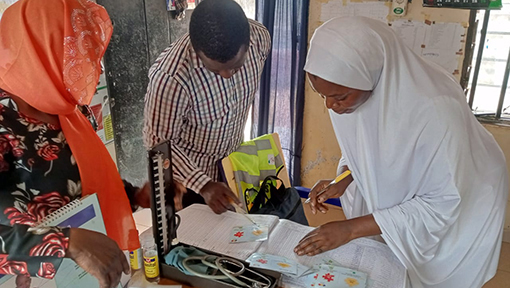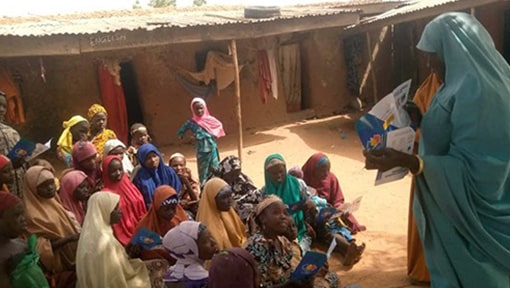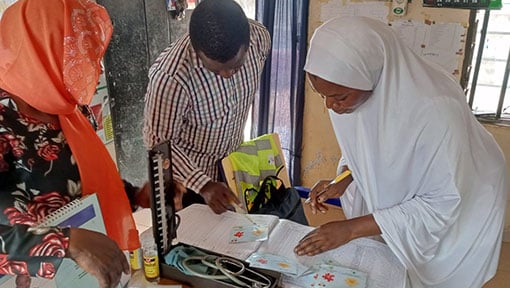TCI India Urban Tales: Firozabad Staff Nurse Finds Satisfaction in Serving Others
Contributors: Parul Saxena and Mange Ram
The following story is part of a series from The Challenge Initiative in India called “Urban Tales,” occasional real-life stories of women and girls in India benefiting from TCI’s work supporting local governments to implement high-impact family planning and adolescent and youth sexual and reproductive health (AYSRH) interventions.

Manisha is a staff nurse at a Firozabad UPHC.
As a child, I was enamored by the doctor’s profession. A mere sight of someone dressed in a white coat brought respect in everyone’s eyes. I wanted to be a doctor too! Growing up in a low-middle class family and the financial constraints [we faced] allowed me to only pursue a General Nursing and Midwifery diploma course from Tundla, Uttar Pradesh (UP). I stay in Tundla and travel 70 kms to and from my home to the UPHC in Firozabad. It is far, but I enjoy my work.”
Manisha is a committed staff nurse posted at the Sant Nagar urban primary health center (UPHC) in Firozabad. She supports all government health programs implemented at the UPHC, including family planning. As a result of advocacy efforts by The Challenge Initiative (TCI), she was trained on family planning counseling and how to provide the injectable Antara and insert intrauterine contraceptive devices (IUCDs). Manisha shared how she actively followed up with her family planning clients during the COVID lockdown and her absence from the UPHC:
My mother is a cancer patient. And during the COVID lockdown, she was hospitalized. At that time, I stayed with her at the cancer hospital. I carried my family planning client’s register to remind Antara clients about their next due dose. I used to telephonically counsel family planning clients who visited the UPHC. I am happy that in my absence none of the family planning client were returned without availing services”
She also stressed the important role society – in particular the family – plays in supporting or obstructing the uptake of family planning services. She recalled a common situation she often faces:
While working as a staff nurse, I found that reluctance from the husbands and in-laws are the biggest obstacles preventing a woman from availing family planning services. I remember an incident when a frail woman visited our UPHC to take STI (sexually transmitted disease) treatment. She had seven children. I counseled her on family planning but her husband staunchly refused it. Later, the woman kept on visiting the UPHC for medicines. I was dismayed to see her suffer. Once her husband had accompanied her, I grabbed courage and spoke to him in detail about the poor condition of his wife’s health. I explained the benefits of family planning. After a number of counseling sessions, I was able to persuade him to use one of the methods. I felt a sense of relief and satisfaction.”
This story highlights the importance of two of TCI India’s high-impact approaches – Strengthening Provider Capacity and Male Engagement.






